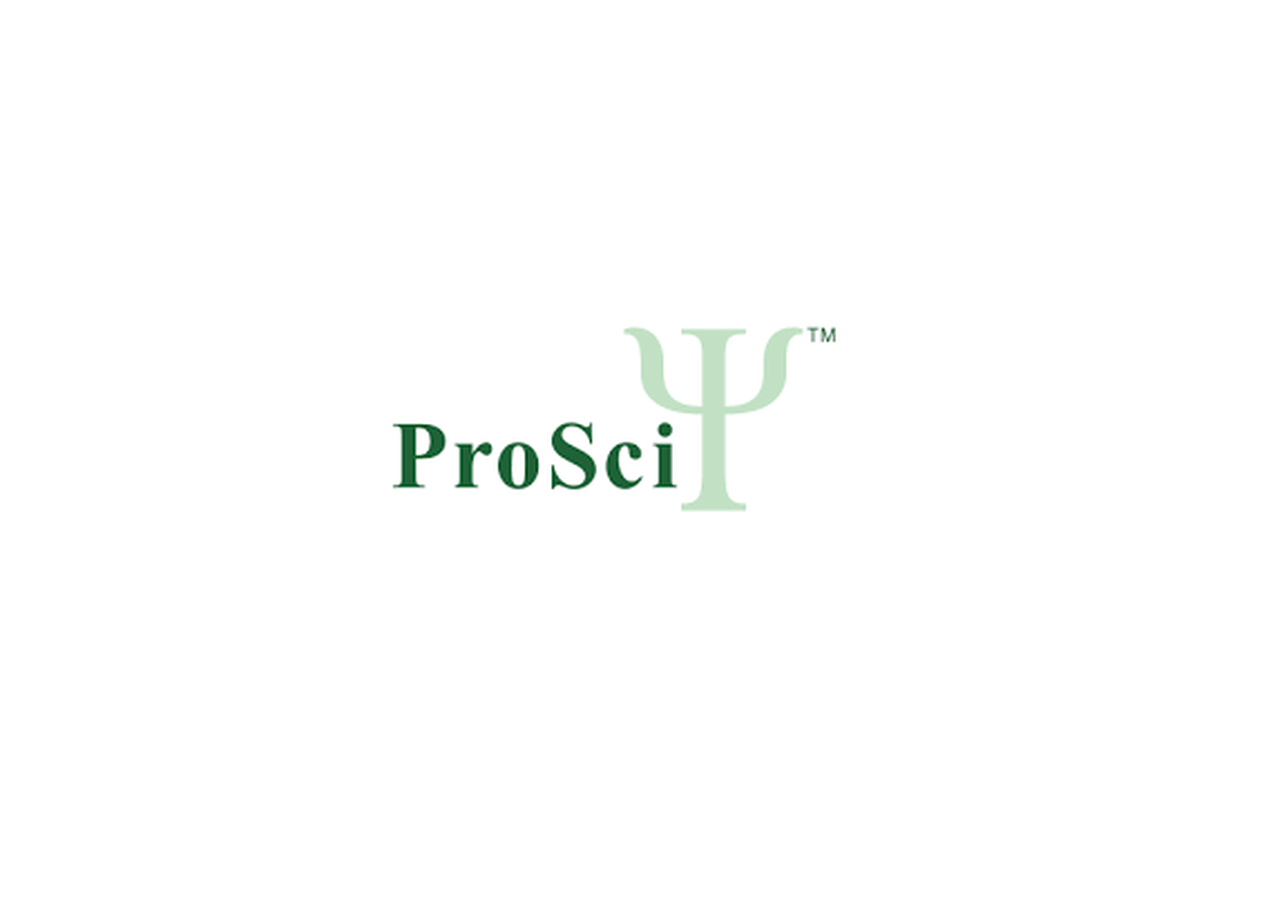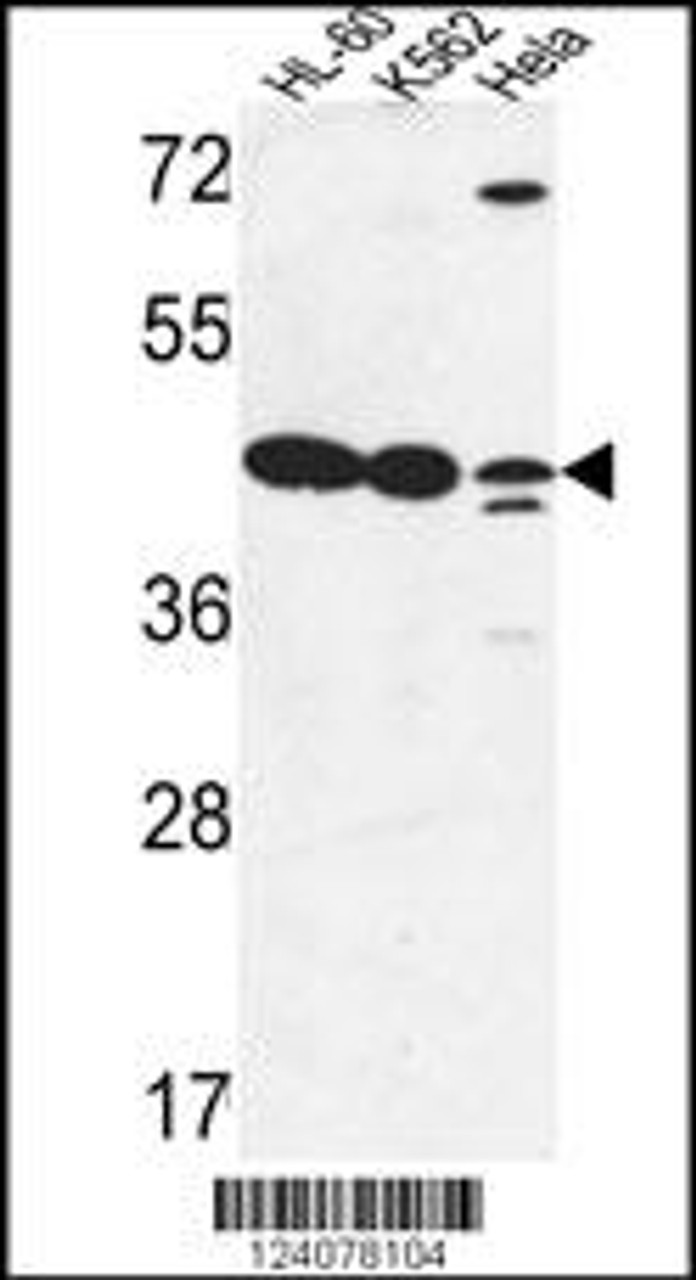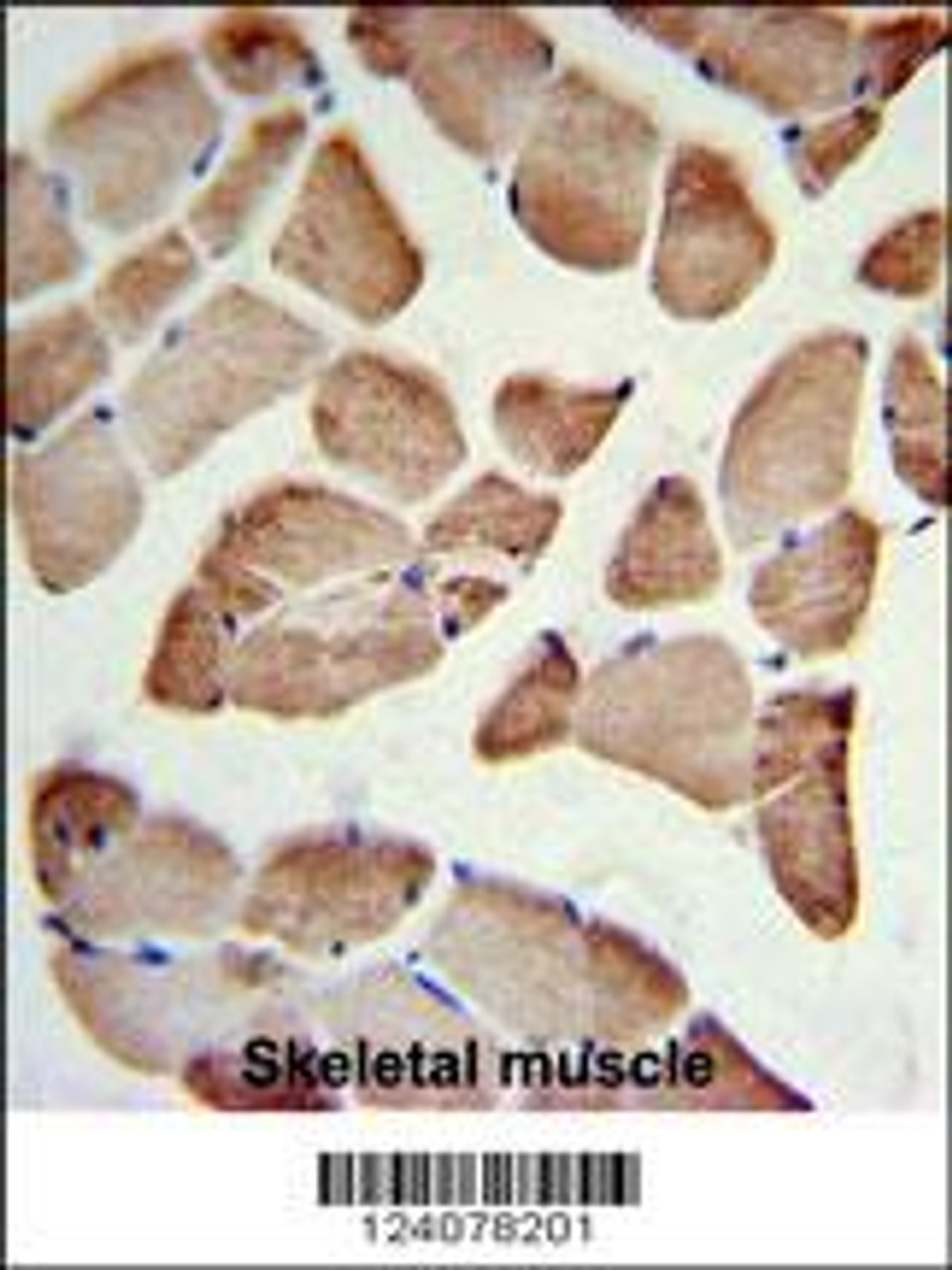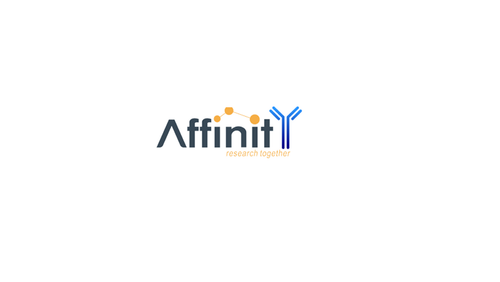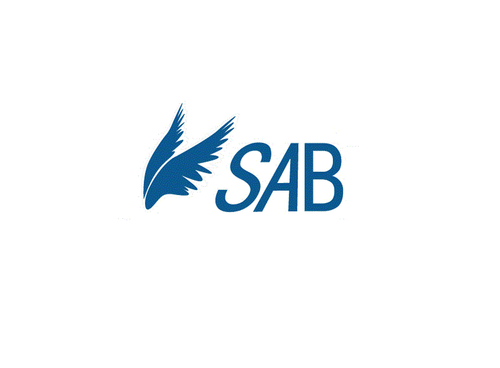Product Description
LFNG Antibody | 63-988 | ProSci
Host: Rabbit
Reactivity: Human
Homology: N/A
Immunogen: This LFNG antibody is generated from rabbits immunized with a KLH conjugated synthetic peptide between 86-114 amino acids from the Central region of human LFNG.
Research Area: Cell Cycle, Neuroscience, Signal Transduction
Tested Application: WB, IHC-P, Flow
Application: For WB starting dilution is: 1:1000
For IHC-P starting dilution is: 1:50~100
For FACS starting dilution is: 1:10~50
Specificiy: N/A
Positive Control 1: N/A
Positive Control 2: N/A
Positive Control 3: N/A
Positive Control 4: N/A
Positive Control 5: N/A
Positive Control 6: N/A
Molecular Weight: 42 kDa
Validation: N/A
Isoform: N/A
Purification: This antibody is purified through a protein A column, followed by peptide affinity purification.
Clonality: Polyclonal
Clone: N/A
Isotype: Rabbit Ig
Conjugate: Unconjugated
Physical State: Liquid
Buffer: Supplied in PBS with 0.09% (W/V) sodium azide.
Concentration: batch dependent
Storage Condition: Store at 4˚C for three months and -20˚C, stable for up to one year. As with all antibodies care should be taken to avoid repeated freeze thaw cycles. Antibodies should not be exposed to prolonged high temperatures.
Alternate Name: Beta-1, 3-N-acetylglucosaminyltransferase lunatic fringe, O-fucosylpeptide 3-beta-N-acetylglucosaminyltransferase, LFNG
User Note: Optimal dilutions for each application to be determined by the researcher.
BACKGROUND: LFNG belongs to evolutionarily conserved glycosyltransferases that act in the Notch signaling pathway to define boundaries during embryonic development. While their genomic structure is distinct from other glycosyltransferases, fringe proteins have a fucose-specific beta-1, 3-N-acetylglucosaminyltransferase activity that leads to elongation of O-linked fucose residues on Notch, which alters Notch signaling. This protein is predicted to be a single-pass type II Golgi membrane protein but it may also be secreted and proteolytically processed like the related proteins in mouse and Drosophila (PMID: 9187150) .
 Euro
Euro
 USD
USD
 British Pound
British Pound
 NULL
NULL

